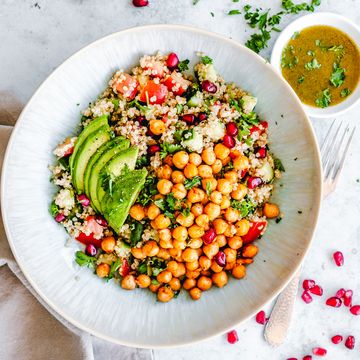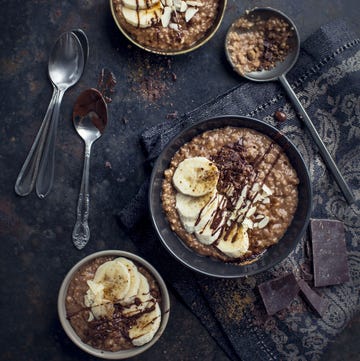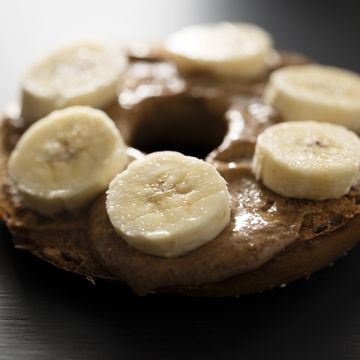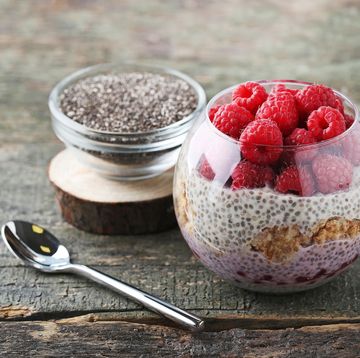Like shin splints and IT band tightness, gastrointestinal distress can be an unwelcome—yet common—part of the sport for many runners.
Eating these kinds of foods may make your running-related stomach issues even worse.
Advertisement - Continue Reading Below Do breakfast needs differ for men and women, the study looked at exercise-related GI issues and the potentially beneficial effects of the low fermentable oligosaccharide, disaccharide, monosaccharide, and polyol (FODMAP) diet. Past research has shown benefits of a low FODMAP diet for those with irritable bowel syndrome (IBS), so researchers wanted to see whether it could help healthy athletes, too.
FODMAPs are short-chain carbohydrates—found in many legumes, grains like wheat and rye, lactose-containing dairy, fruits high in fructose, vegetables like onions, some nuts, and artificial sweeteners—that are poorly digested and absorbed.
That’s not always a bad thing: Considered dietary fiber, these carbs rocket toward the end of your intestine, where the majority of gut bacteria are. The good bugs in your belly use these carbs for fuel, but much like any fuel processing, there are by-products, like gas. For some people, such as those with IBS, certain high-FODMAP foods create digestive issues that can become chronic, such as bloating, stomach cramps, and pain.
Researchers looked at 16 volunteers who were given either a low-FODMAP or high-FODMAP diet for seven days, followed by a week of whatever they wanted to eat, and then one week on whichever FODMAP diet they didn’t have initially. They rated not only their GI symptoms, but also their perceived ability to exercise.
The researchers found that a low FODMAP diet significantly improved running-related GI symptoms in 69 percent of the people. Overall, the participants reported significant improvements in exercise frequency and intensity on the low-FODMAP diet, leading researchers to conclude that following that diet could reduce exercise-related and IBS-related GI symptoms.
Study co-author Justin Roberts, Ph.D., at the Cambridge Centre for Sport & Exercise Sciences told Runner’s World that previous studies have indicated high-FODMAP diets may lead to undigested carbohydrates fermenting in the GI tract, which can cause digestive distress. Reducing those foods, even in the short term—such as a few days leading up to a long run or a race—may reduce risk of symptoms. But, he emphasized, the benefits are likely to be highly individualized.
“Some people may notice reduced bloating or cramping, others may notice reduced nausea,” he said. “This largely depends on factors like previous history of symptoms and type of diet.”
Interestingly, he added, switching to a low-FODMAP diet may help your brain as well as your belly.
“We found that people reported improved perception of exercise, which may be important during sustained training periods,” he said.
Obviously, some of the foods on the FODMAPs list are super healthy, like probiotic-packed yogurt, for example, or whole grains. Also, Roberts noted, there’s a potential trade-off for the benefits.
“We do suggest caution in this approach, as we did find that reducing FODMAP-based foods tended to result in lower-than-expected carbohydrate and calorie intake,” he said. “Meaning that a low-FODMAP approach may need to be introduced in short cycles as opposed to a sustained low-FODMAP intake.”
So, as long as you’re getting your carbs and calories right, and seeing low-FODMAP eating as part of your run or race prep, it can be a helpful way to tame those digestive dilemmas.













